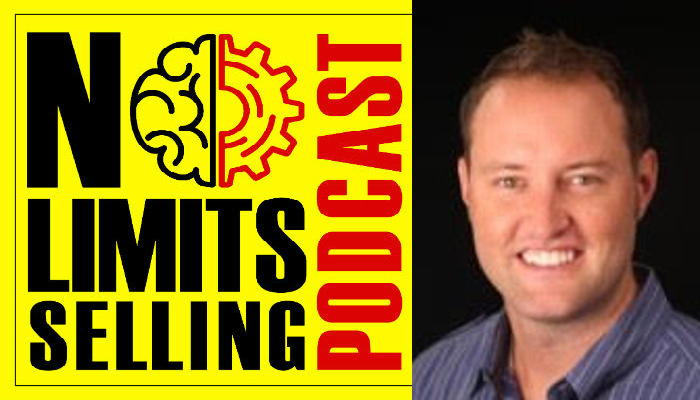How To Use Trello for Effective Online Management
On Episode 154 of The No Limits Selling Podcast, we have Pete Ryan, Co-Founder and Co-Ceo at CoSell, a network built for sales teams to discover new partners, surface prospect and customer overlaps, and drive the exchange of warm introductions into key accounts. Before CoSell, Pete co-founded CoSell, was the head of enterprise sales at Trello/Atlassian, one of the first sales reps at LinkedIn.

Contact Pete:
[EDITOR’S NOTE: This podcast is sponsored by No Limits Selling. It is a fun, fast-paced podcast that delivers hard-fought business advice that you can implement today to improve your sales and performance]
Interested In Our Real Estate Coaching Services? Explore Our Website: Link
Feeling Not Well Today? You Can Use Our Mindset Boosters App To amp Up Your Mood: Link
Find us on Social Media:
LinkedIn | Facebook community | Instagram
Like what do you listen to? Subscribe to our podcast!
Ready to become fearless? We can help you become fearless in 60 days so you accomplish more in your career Schedule A 15 min Call with Umar
Summary
Introduction and Background
The podcast begins with host Umar Hameed introducing Pete Ryan, the co-founder, and co-CEO of CoSell. The conversation is centered around the concept of getting two sales organizations within one company to work together to maximize their ability to sell. Pete Ryan shares his background, including his time at LinkedIn and Atlassian, and how these experiences led him to co-found CoSell.
The Problem and the Solution
Pete Ryan discusses the challenges faced by sales organizations, particularly the difficulty of coordinating and collaborating between different sales teams. He explains how technology, like CoSell, can help bridge this gap and facilitate better collaboration. He uses the example of Gong and Chorus, technologies that have revolutionized how salespeople operate by providing call recording and coaching capabilities.
The Birth of Cosell
Ryan shares the story of how CoSell was born out of the need to solve these challenges. He mentions how he brought on Brendan Cassidy, an early employee at LinkedIn, as a co-founder and advisor. Andrew Brewis, another co-founder, was brought on board as the CTO. The team saw a perfect storm of demand for a solution like CoSell, which could help salespeople break into accounts and allow companies to go to market together.
How CoSell Works
CoSell's mission is to make sales more human by unlocking relationships between partners. The platform creates a network of interconnected CRMs, allowing companies to find overlaps in their markets and drive warm introductions. Ryan uses the example of Zoom and Slack, two non-competitive companies targeting similar markets, to illustrate how CoSell can facilitate collaboration and drive sales. He mentions that half of their customers have closed at least one deal within the first two months of using CoSell.
Personal Productivity Hacks
Toward the end of the podcast, Ryan shares some personal productivity hacks. He talks about the importance of physical exercise and meditation in maintaining mental health and productivity. He also discusses the value of taking breaks and ensuring good sleep for optimal performance.
Conclusion
In the podcast, Pete Ryan, Co-Founder and Co-CEO of CoSell, discusses the challenges faced by sales organizations in coordinating their efforts and the role of technology in bridging this gap. He shares the story of CoSell's inception, born out of the need to facilitate better collaboration between sales teams. CoSell's mission is to humanize sales by unlocking relationships between partners, creating a network of interconnected CRMs, and enabling companies to find overlaps in their markets.
Ryan uses the example of Zoom and Slack to illustrate CoSell's functionality. He also shares personal productivity hacks, emphasizing the importance of physical exercise, meditation, and rest. The podcast underscores the value of collaboration in sales and the transformative potential of platforms like CoSell in enhancing sales performance.
Questions & Answers
What is CoSell and How Can It Transform My Sales Process?
Who are the Founders of CoSell?
How Does CoSell Facilitate Collaboration Between Sales Teams?
What are Some Examples of Companies That Could Benefit from CoSell?
What are Pete Ryan's Personal Productivity Hacks?
What is the Success Rate of Companies Using CoSell?
How Does CoSell Make Sales More Human?
Don’t miss this opportunity to transform your real estate career with one-on-one coaching. As an experienced real estate coach, I, Umar Hameed, am dedicated to helping you unlock your full potential and achieve your real estate goals. To learn more about who am I and my clients ↓
If you’re ready to take the next step, book an appointment with me today and begin your journey toward success in the real estate industry.
